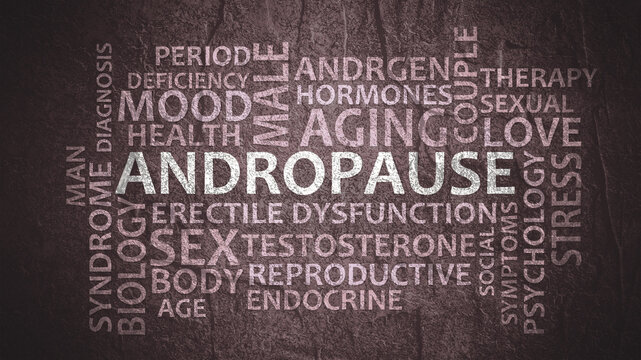While menopause is a well-known stage in a woman’s life, few people realize that men experience a similar phase known as andropause, often referred to as the male menopause. This gradual hormonal transition can lead to significant physical, emotional, and psychological changes. At First Point MD, we understand that men’s hormonal health is just as important as women’s, and recognizing the signs of andropause early can help men manage symptoms, maintain vitality, and improve overall quality of life.
Understanding Andropause: What Is It Exactly?
Andropause is a condition associated with a gradual decline in testosterone levels—the primary male sex hormone responsible for muscle mass, energy, mood, libido, and overall vitality. Unlike menopause, which occurs suddenly, andropause happens slowly over time, typically beginning around the age of 40 to 55.
This reduction in testosterone production, known medically as late-onset hypogonadism, can affect nearly all systems in the male body. While not every man experiences noticeable symptoms, many begin to see changes in energy levels, sexual health, muscle strength, and even cognitive function.
At First Point MD, we take a proactive and comprehensive approach to diagnosing and managing andropause—helping men regain balance, confidence, and control of their health.
The Role of Testosterone in Men’s Health
Testosterone is often associated with masculinity, but its influence goes far beyond sexual function. It plays a critical role in:
-
Building and maintaining muscle mass
-
Regulating mood and mental focus
-
Supporting bone density
-
Stimulating red blood cell production
-
Maintaining a healthy libido
-
Promoting fat metabolism and energy balance
When testosterone levels decline, even slightly, it can have a ripple effect across multiple body systems. This is why recognizing and addressing hormonal imbalances early is vital for maintaining long-term wellness.
Common Signs and Symptoms of Andropause
Andropause doesn’t occur overnight—it’s a gradual process that can progress for years. The symptoms vary from man to man, but the most common include:
Fatigue and Low Energy
Many men report a noticeable decline in stamina and motivation. This fatigue often persists even after adequate rest and can impact daily performance.
Decreased Libido and Sexual Performance
A reduced interest in sexual activity and challenges with erectile function are among the most recognized symptoms of andropause. These changes are linked directly to declining testosterone levels.
Mood Changes and Irritability
Low testosterone can lead to mood swings, irritability, and even depression. Many men describe a sense of mental fog or reduced motivation during this stage.
Loss of Muscle Mass and Strength
Testosterone is essential for muscle growth. When levels drop, muscle tone diminishes, and body fat, particularly around the abdomen, begins to increase.
Sleep Disturbances
Insomnia and disrupted sleep patterns are common complaints during andropause, often worsened by stress or hormonal imbalance.
Cognitive Decline
Memory lapses, reduced focus, and slower reaction times can accompany hormonal decline. Testosterone supports brain function, and low levels may affect cognitive performance.
Osteoporosis and Bone Weakness
Lower testosterone can result in reduced bone density, making older men more susceptible to fractures and osteoporosis—a condition often thought to affect only women.
If these symptoms sound familiar, it may be time to discuss hormonal testing with a trusted primary care provider at First Point MD.
Diagnosing Andropause: The Importance of Hormonal Evaluation
Because andropause symptoms often overlap with other health conditions—such as thyroid dysfunction, stress, or sleep apnea—a comprehensive medical evaluation is essential for accurate diagnosis.
At First Point MD, we use advanced diagnostic tools to assess hormonal balance. This typically includes:
-
Blood tests to measure total and free testosterone levels
-
Lipid profiles and blood glucose tests to assess metabolic health
-
Thyroid function testing to rule out related disorders
-
Physical examinations and symptom assessments
Understanding these results allows our healthcare team to create personalized treatment plans designed to restore optimal hormonal balance and enhance overall wellness.
Causes and Contributing Factors to Low Testosterone
While age is the most significant factor in testosterone decline, several lifestyle and health-related factors can accelerate or worsen andropause symptoms:
-
Chronic stress and high cortisol levels
-
Poor diet and lack of exercise
-
Excessive alcohol consumption
-
Obesity or metabolic syndrome
-
Sleep deprivation
-
Certain medications (such as corticosteroids or opioids)
-
Underlying health conditions (like diabetes or hypertension)
Addressing these underlying causes is often the first step toward restoring natural testosterone levels and improving overall vitality.
Treatment Options for Andropause
At First Point MD, we believe that managing andropause requires a comprehensive and individualized approach. Our goal is not just to boost testosterone, but to help men achieve balanced health through holistic, evidence-based care.
1. Testosterone Replacement Therapy (TRT)
For men with clinically low testosterone, TRT can be a highly effective treatment. It helps restore hormone levels to a normal range, improving energy, libido, muscle mass, and mood.
TRT is available in various forms, including:
-
Topical gels or creams
-
Injections (intramuscular or subcutaneous)
-
Patches applied to the skin
-
Pellets implanted under the skin for slow, steady hormone release
Before starting therapy, our physicians carefully evaluate your medical history and lab results to ensure safe, customized dosing and regular monitoring.
Lifestyle and Nutritional Modifications
Hormonal health is deeply influenced by lifestyle. Simple yet effective changes can have a major impact on testosterone levels and overall well-being:
-
Exercise regularly, focusing on strength training and cardiovascular health
-
Eat a balanced diet rich in lean proteins, healthy fats, and essential micronutrients like zinc and magnesium
-
Maintain a healthy body weight to reduce excess estrogen production
-
Get 7–8 hours of quality sleep to support natural hormone regulation
-
Limit alcohol and processed sugar intake
-
Reduce stress through meditation, yoga, or mindfulness practices
Managing Mental Health
Emotional health plays a significant role during andropause. Many men benefit from counseling or stress management programs to navigate mood swings, anxiety, or depression related to hormonal changes.
Supplementation
Certain vitamins and minerals—such as vitamin D, zinc, magnesium, and omega-3 fatty acids—may support testosterone production. Your physician can recommend supplements that complement your treatment plan safely.
The Link Between Andropause and Chronic Health Conditions
Low testosterone doesn’t just affect sexual health—it also contributes to chronic medical conditions that can impact long-term wellness. Studies have shown that andropause is associated with:
-
Cardiovascular disease due to increased cholesterol and blood pressure
-
Type 2 diabetes linked to insulin resistance
-
Metabolic syndrome characterized by abdominal obesity and fatigue
-
Osteoporosis and bone weakness
-
Cognitive decline and dementia risk
Through early diagnosis and integrated primary care, these risks can be minimized, helping men stay active and healthy as they age.
How Primary Care Plays a Role in Managing Andropause
Your primary care physician is your first line of defense in identifying and managing hormonal changes. At First Point MD, our healthcare professionals provide:
-
Routine screening and hormone testing
-
Personalized treatment programs including lifestyle, nutritional, and medical support
-
Continuous monitoring to ensure safe and effective hormone therapy
-
Preventive care to manage related health risks such as heart disease or diabetes
Our holistic approach ensures that every patient receives comprehensive care—not just for hormonal balance, but for overall wellness and longevity.
Embracing Healthy Aging: Thriving Beyond Andropause
Andropause is a natural part of aging—but it doesn’t have to mean a decline in quality of life. With the right medical support, men can maintain their strength, energy, and confidence well into later years.
At First Point MD, we encourage men to view andropause not as a limitation, but as an opportunity to refocus on their health. By combining preventive care, advanced hormonal treatments, and lifestyle optimization, we help patients restore balance and rediscover vitality.
Our Commitment to Men’s Health Includes:
-
Comprehensive physical and hormonal assessments
-
Safe and personalized hormone therapy options
-
Nutritional and exercise counseling
-
Mental and emotional health support
-
Ongoing monitoring for optimal results
Our mission is to empower men to live healthier, more fulfilling lives at every stage.
When to See a Doctor About Andropause
If you’ve noticed unexplained fatigue, weight gain, mood changes, or decreased sexual drive, it’s time to talk to your primary care provider. The earlier you address these changes, the more effectively they can be managed.
At First Point MD, we provide confidential consultations and advanced testing to identify hormonal imbalances quickly. Our dedicated team works with you to create a personalized care plan that fits your health goals, lifestyle, and preferences.
Conclusion
Andropause is a natural yet often misunderstood phase of a man’s life. While declining testosterone levels can bring physical and emotional challenges, they don’t have to define your health or happiness. With professional guidance, preventive care, and modern medical treatments, men can continue to lead vibrant, active, and fulfilling lives.
At First Point MD, we are committed to helping men understand and manage andropause through compassionate, evidence-based care. Whether you’re noticing early signs of hormonal change or seeking long-term wellness strategies, our team is here to support you every step of the way.


